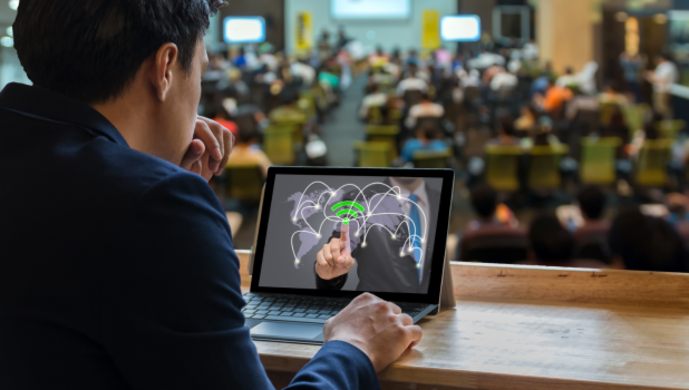Listen to the podcast:
Can you explain the advantages of having AI and robots onboard without it being a threat to humans in the long run?
Having AI and robots in this type of epidemic is not a new idea. Several years ago, when the Ebola virus was spread around the world, especially around Africa, robots were deployed to infected areas to test people and rescue those who needed medical treatments. I think that thanks to the recent advancement of AI and robotics, similar types of use of robots became more effective and sophisticated.
On top of the search and rescue type of work, telemedicine is another case where we can use physical robots. So far, only a limited number of hospitals utilize robots as a means of document and supply delivery. Yet, the recent outbreak, requiring us to maintain social distance, makes medical treatments with close contacts more difficult and risky. Telemedicine with robots can communicate with patients, deliver credible information, and even sometimes examine them.
Robots in these cases are not really a threat to humans, but a new type of teammate that will be paired with human experts, with clear advantages.
Robots in these cases are not really a threat to humans, but a new type of teammate that will be paired with human experts, with clear advantages: We don’t need to risk precious human lives and we avoid short-staffed medical system, especially when the hospitals are overloaded. I am not sure how close we are to this future, but I believe that we are going in that direction. What matters is not whether the development of AI is going to happen, but the scale of its use and deployment.
Also, firms will more aggressively develop chatbots and AI-agents as their service representatives. People will become more used to it and more accepting those new human replacements. Just like recent trends that banks are moving to completely online, customers may expect AI agents able to provide customized answers for your questions based on your information retrieved from large data centers.
Lastly, I think robots and AI-agents will be in greater need by people who feel lonely because of social distancing. Many people are already starting to feel isolated by staying at home. Psychological and emotional support is one area that natural language speaking machines like robots and smart speakers can do pretty well in the near future.
Post-crisis, what is the possible impact on the future of work?
There is a joke around the internet that it is the coronavirus that really drives the digital transformation of firms. The successful implementation of online work will make organizations realize that they can actually save a lot of money by going online. Virtual teams will be more commonplace. Reliance on electronic communication is vital to understand the virtual team success. We will be required to know more and better about using different tools that support electronic communications, and to learn how to minimize communication barriers.
The successful implementation of online work will make organizations realize that they can actually save a lot of money by going online.
Also, teams going virtual need to deal with many things like differences in time zones, cultures, norms, and routines. Groups that just became online will experience many inefficiencies and hiccups, merely making each other understood and exchange paperwork. There may also be some terrible temptation of procrastination and family distraction. There is some upside as well. We can enjoy the flexibility of work hours. The online meetings will be recorded and reviewable, so you can’t say, «oh, I forgot to do that». Ranks and hierarchy would not matter so much in online communication. We need to juggle it all.
We already see that social distancing is becoming a new normal and a new virtue in urban lives. I believe that even after the situation settles down, social distancing will take a lasting effect on our lives and how we work. What I mean is, social interaction, specifically face-to-face interaction, may become a scarce resource for organizations. Perhaps we’ll emphasize and appreciate even more the face-to-face interactions, meetings, gatherings, and conferences in the post-crisis era. I believe that offline social skills may become more valued than online skills in the age of online work.










